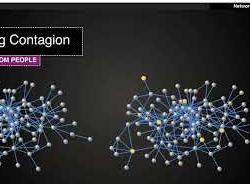Azeem Azhar speaks with Yale Professor of Social and Natural Science, Internal Medicine & Biomedical Engineering, Nicholas Christakis, whose latest book “Apollo’s Arrow,” lays out the three phases of the world’s recovery from the Covid-19 pandemic. Christakis argues that each phase will be fraught with risk and will leave an enduring impact on our society, economy, and politics.
 Social Network Interventions (2025)
Social Network Interventions (2025)
 Social Network Interventions (2025)
Social Network Interventions (2025)